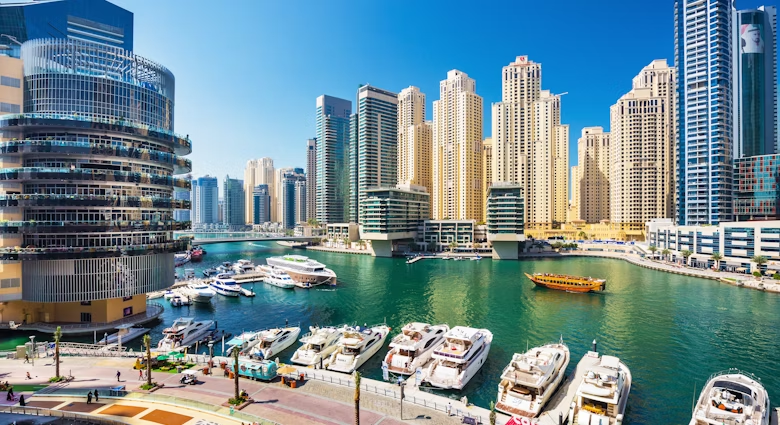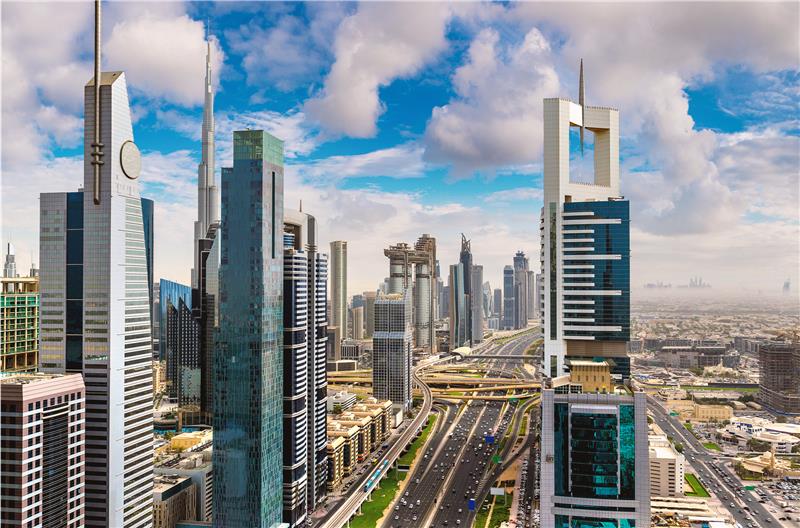Short Answer: Yes, you absolutely can. And here’s exactly how it works — from the legal structure and logistics to tax benefits and global operations.
Running an international business out of Dubai isn’t just possible — it’s actually one of the smartest moves you can make in today’s economy. With 40+ free zones offering unmatched flexibility, zero tax benefits, and access to world-class infrastructure, Dubai has become the go-to destination for entrepreneurs, remote business owners, digital nomads, and companies aiming for global expansion.
In this article, we’ll break it all down:
✅ Can you legally operate worldwide from a Dubai Free Zone?
✅ What industries and business models are best suited?
✅ How to structure your company to serve global clients
✅ What are the tax rules, banking options, and invoicing best practices?
✅ Real-world examples and mistakes to avoid
Let’s get into it.
What Is a Dubai Free Zone?
A Free Zone (also called a Free Trade Zone or FTZ) is a special economic area where foreign business owners can fully own their companies (100% foreign ownership) without needing a local partner. Each zone is regulated by its own authority and is designed to attract certain types of businesses—like tech, media, logistics, finance, or trading.
Some of the most well-known ones include:
- DMCC (Dubai Multi Commodities Centre)
- IFZA (International Free Zone Authority)
- Dubai Internet City
- DIFC (Dubai International Financial Centre)
- Dubai South
- D3 (Dubai Design District)
Each free zone is essentially a business park — with offices, warehousing, coworking spaces, and licensing authorities — giving you everything you need to start and run your business locally or globally.

Can You Operate Internationally from a Free Zone?
✅ YES. In fact, most Free Zone businesses are designed to operate globally.
Free zone companies are legally allowed to:
- Sell goods and services to international markets
- Sign global contracts
- Invoice clients in other countries
- Hire remote teams (inside or outside UAE)
- Use Dubai as a global headquarters
What they can’t do (unless additional licenses are taken):
- Sell directly to the UAE mainland market without a distributor or local branch
- Import/export goods through the UAE without proper customs clearance
- Open retail shops or cafes in Dubai without DED (mainland) permissions
But for international operations — SaaS companies, consultants, exporters, e-commerce brands, freelancers, marketing agencies — free zones offer full freedom.
Why Dubai Is the Best Base for International Entrepreneurs
Here’s why thousands of founders move to Dubai every year:
1. 0% Personal Tax and 0% Income Tax
As of now, individuals in Dubai do not pay personal income tax. Even the new 9% corporate tax only applies to net profits over AED 375,000/year (~$100,000), and only if you’re not qualifying under Free Zone exemptions.
2. 100% Foreign Ownership
Unlike mainland UAE, where you often need a local sponsor, Free Zone companies give you full control.
3. Easy Banking
Once you have your company set up and residency visa (if required), you can open business and personal bank accounts in AED, USD, EUR.
4. Global Reputation
Dubai’s banking, legal, and compliance systems are well-recognized globally. Clients from the US, EU, or Asia are usually happy to deal with a UAE-based company.
5. Strategic Location
Dubai’s time zone (GMT+4) and its location between Europe and Asia make it perfect for serving both markets.
6. Quality of Life + Residency
Setting up a Free Zone company can get you a UAE residency visa. You can legally live here, access healthcare, rent property, and travel easily across the region.

Step-by-Step: How to Run an International Business from Dubai
Here’s what the process looks like:
Step 1: Choose the Right Free Zone
Not all free zones are the same. Some offer cheaper setup costs, while others have more international credibility.
If you’re in:
- Tech, SaaS, consulting, marketing, design → IFZA, Meydan, DMC, Shams
- Crypto, fintech, blockchain → DMCC, DIFC, ADGM
- Trade and logistics → JAFZA, Dubai South
- Media, content, events → DMC, D3, TwoFour54
Your chosen free zone must match your activity (check the license list).
Step 2: Pick the Business Activities
Your license will list your approved activities. For international business:
- “Management consultancy”
- “Online marketing services”
- “IT services”
- “Software development”
- “Import/export”
- “E-commerce”
Make sure your activity allows remote service delivery or international trading.
Step 3: Get Your License
Once your documents are ready (passport, photos, business plan if required), you can:
- Apply for the license (usually takes 5–10 working days)
- Get your company documents: license, trade name certificate, MOA, etc.
Pro tip: Some zones like IFZA and Shams allow you to get started without needing a physical office — great for remote businesses.
Step 4: Get Your UAE Residency (Optional)
If you want to live in Dubai or open a personal bank account, apply for a residency visa through your company.
Steps:
- Entry permit
- Medical test + Emirates ID
- Residency stamping (valid 2–3 years)
Banking: How to Handle Global Payments
Once your Free Zone company is set up, you can open:
- A business account in a UAE bank (Mashreq, RAKBank, Wio, etc.)
- A multi-currency account (USD, EUR, GBP, AED)
You can also:
- Accept payments via Stripe, PayPal, or Wise
- Send invoices internationally
- Receive wire transfers (SWIFT) from clients abroad
Important: Most banks require:
- A real business model
- Website/social media presence
- Invoices or client contracts
- Local mobile number and address
Pro tip: Use Wio Bank or Zand for faster, digital-first account opening.

Taxes: What You Need to Know
1. Corporate Tax (from June 2023)
- 0% tax on annual net profit up to AED 375,000
- 9% on profits above that
- Free Zone companies may remain at 0% if they meet certain qualifying income rules (like income from outside UAE)
Check with a tax consultant to see if your business qualifies.
2. No VAT for Most International Services
If your clients are outside the UAE, you may not have to charge VAT (currently 5%).
This makes you highly competitive as a service provider.
Hiring & Remote Work
Dubai Free Zones allow you to:
- Hire local talent and sponsor their visas
- Build a remote team across the world
- Use freelancers or contractors internationally
Some visa options include:
- Employment visas
- Freelancer permits (for creatives, media professionals)
- Investor/partner visa (for the business owner)
You can run a fully remote company with a Dubai base, using Zoom, Slack, Trello — just like any other global business.
Compliance, Invoicing & Clients
Once operational, your business should:
- Use professional invoicing (in AED or USD)
- Comply with local bookkeeping or accounting rules
- Submit annual audits (if required by the zone)
- File corporate tax (even if at 0%)
Clients typically don’t care where you’re based, as long as:
- You’re compliant
- You can deliver the work
- You can send valid invoices
- They can pay you via bank transfer or card

Real-World Examples
Case 1: Marketing Agency Serving Clients in the US & UK
Sarah runs a 5-person social media agency from Dubai. Her clients are in the US and UK. She charges in USD, operates through IFZA, pays 0% tax (under AED 375K profit), and lives in Dubai with a residency visa.
Case 2: Online Coach Working Remotely from Dubai
James is a business coach with clients in 10 countries. He uses Stripe + Wio Bank, holds a DMC license, and uses coworking spaces in Dubai for meetings. He pays no VAT and lives a tax-free lifestyle.
Case 3: E-Commerce Brand Shipping Globally
Priya runs a Shopify store, manufacturing in India, fulfilling via warehouses in Europe and the US. Her Dubai Free Zone company manages all international payments, logistics coordination, and legal ownership of the brand.
Common Mistakes to Avoid
❌ Choosing the wrong license activity that limits what you can do
❌ Setting up without understanding corporate tax and compliance
❌ Not preparing proper documentation for banking
❌ Assuming Free Zone means you can trade in mainland UAE (you can’t unless licensed)
❌ Ignoring VAT rules — even 0% VAT must be reported properly

Final Thoughts
Yes — you can absolutely run an international business from a Dubai Free Zone. In fact, for many digital businesses, coaches, consultants, online retailers, and tech entrepreneurs — there’s no better place to be.
Dubai gives you:
- A tax-efficient legal structure
- Global credibility
- Easy banking and invoicing
- Full ownership
- Residency benefits
- Lifestyle advantages
If you’re ready to go global — Dubai should be on your radar.

